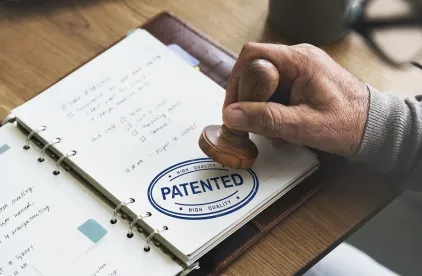On January 31, 2019, the Patent Trial and Appeal Board (“PTAB”) issued a decision in Sling TV, L.L.C. et al. v. Realtime Adaptive Streaming, LLC, IPR2018-01331, Paper 9 (PTAB January 31, 2019), holding that only a patent owner’s complaint will trigger the one-year time bar under 35 U.S.C. § 315(b).
Section 315(b) states that an inter partes review (“IPR”) “may not be instituted if the petition requesting the proceeding is filed more than 1 year after the date on which the petitioner, real party in interest or privy of the petitioner is served with a complaint alleging infringement of the patent.” Here, the petitioners (Sling TV, et al.) were served with a complaint on June 6, 2017, from Realtime Data, but did not file an IPR petition until July 3, 2018, more than one year after being served. Accordingly, the patent owner (Realtime Adaptive Streaming) argued that Sling TV’s petition was time-barred under § 315(b). The PTAB rejected this argument in light of the fact that Realtime Data (not Realtime Adaptive Streaming, who owned the patent) had filed the complaint on June 6, 2017. Realtime Data had recorded an assignment to Realtime Adaptive Streaming three months before filing suit. As a result, after filing the complaint, and in view of the assignment, Realtime Data voluntarily dismissed its complaint without prejudice, and Realtime Adaptive Streaming then filed a new complaint on October 10, 2017. The PTAB held that the October 10, 2017 date was the correct date from which to measure the § 315(b) time bar.
In reaching its conclusion, the PTAB reasoned that, “[a]lthough the statute’s text is not explicit as to who must file and serve the complaint, § 315(b) is titled ‘Patent Owner’s Action,’ thus suggesting that only service of a patent owner’s complaint triggers the one-year time bar.” The PTAB further relied on legislative history purportedly demonstrating that “Congress envisioned that only a patent owner’s complaint would trigger the time bar.”
The PTAB also rejected Realtime Adaptive Streaming’s reliance on the Federal Circuit’s holding in Click-to-Call Techs., LP v. Ingenio, Inc., 899 F.3d 1321 (Fed. Cir. 2018) (en banc). As the PTAB explained, “Click-to-Call established that a complaint’s later dismissal has no bearing on the one-year time bar” but Click-to-Call did not address “whether a complaint filed without standing triggers § 315(b)’s time bar.”
As the PTAB now makes clear in Sling TV, L.L.C. et al. v. Realtime Adaptive Streaming, LLC, standing is required to trigger the time bar.





 />i
/>i

